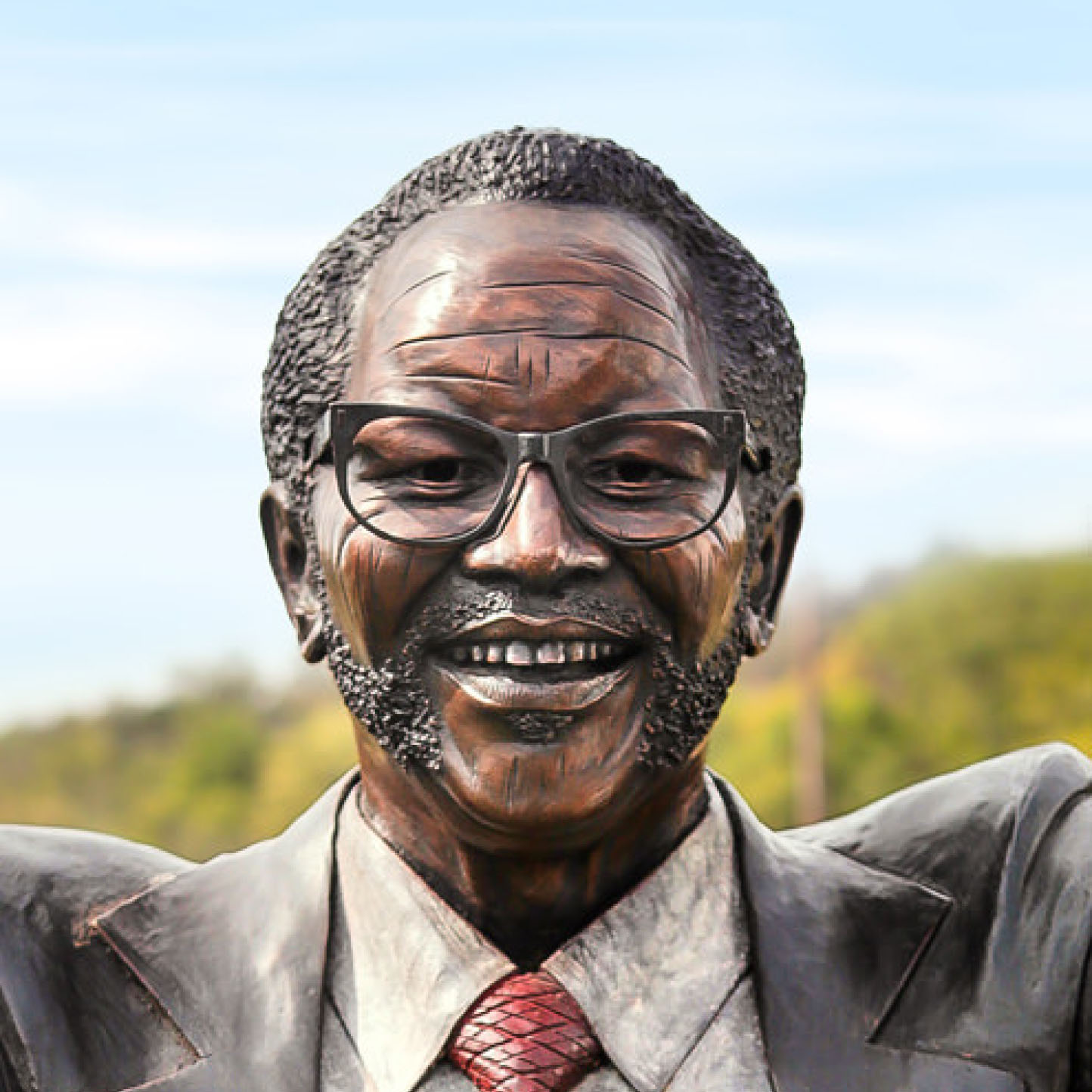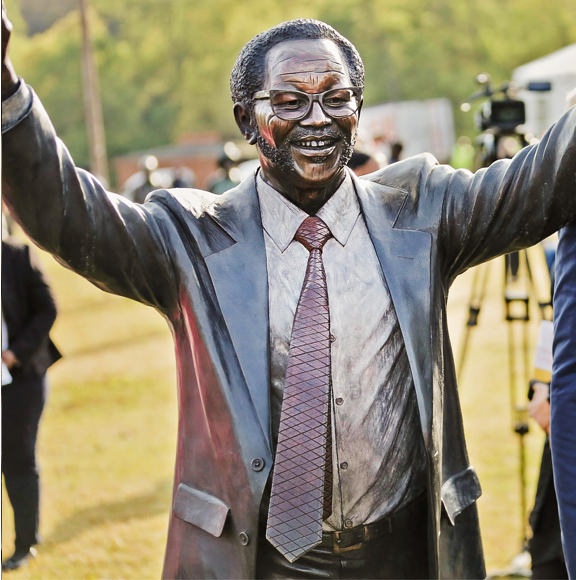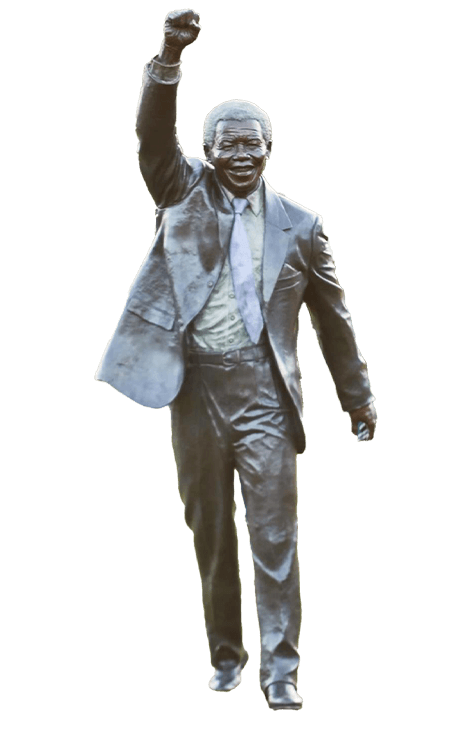


"It is our responsibility to break down barriers of division and create a country where there will be neither Whites nor Blacks, just South Africans, free and united in diversity."
– Oliver Tambo Epitaph on the grave of OR and Adelaide Tambo, Tamboville Cemetery, Ekurhuleni
Oliver Reginald Tambo
1917 - 1993
Co-founder of the ANC Youth League, Secretary General and Deputy President of the ANC, longest-serving President of the ANC, Chairman of the ANC
Oliver Reginald Tambo was born in the Eastern Cape. A brilliant scholar, he attended Methodist and Anglican mission schools, St. Peter's in Johannesburg and the University of Fort Hare obtaining his B.Sc. degree in 1941.
After teaching science and mathematics at his Alma Mater, St. Peter's in Johannesburg, he studied law.
In 1944 with Nelson Mandela, Walter Sisulu and others, he was among the founders of the African National Congress Youth League (ANCYL) to revitalize the movement, then recovering from a period of serious decline and disarray. While teaching mathematics and science, Tambo became more fully engaged in nationalist politics, advancing in the ranks of the ANC. He was elected to the NEC in 1947.
In 1952 he joined with Mandela to establish South Africa's first black law partnership. Tambo was arrested on treason charges in 1956 but released the following year.
In 1955 Tambo became engaged to Adelaide Tsukudu, a Youth League activist and nurse employed at Baragwanath Hospital in Johannesburg; they were married in December 1956. The couple had three children, Thembi, Dali and Tselane, but his ANC activities and later life in exile meant that Tambo saw little of his family, the role of the main supporter falling on Adelaide.
When the apartheid regime banned Walter Sisulu, Tambo was elected Secretary-General of the ANC in 1955.
In 1958 Tambo was elected ANC Deputy President. In 1959 he was served with a five year banning order by the apartheid government. After the Sharpeville massacre of March 1960 the ANC sent Tambo on an international mission to mobilise support for the South African liberation movement. His family joined him in London the following year. After the key figures of the movement's leadership were arrested at Rivonia in July 1963, Tambo was tasked with establishing an external headquarters for the movement.
In 1967, after the ANC president Chief Albert Luthuli met a mysterious death, Tambo, as Deputy-President assumed the role of acting president. He was officially elected to the post of President in 1969.
Tambo's most significant achievement was reconstructing the organisation's underground inside South Africa and maintaining the unity of the ANC in exile.
By skillful international lobbying and attracting talented South African exiles, he built the organization into a formidable force as the legitimate voice of black South Africans. Though operating from exile, Tambo's ANC was central to mass politics in South Africa during the late 1970s and throughout the 1980s.
As the tide turned against apartheid in the mid-1980s, business leaders, politicians and academics traveled to Lusaka for discussions with Tambo's team, further boosting the ANC's prestige. Tambo personally led the ANC initiative that resulted in the OAU Liberation Committee's adoption of the Harare Declaration. He suffered a stroke on the very eve of that meeting in Lusaka.
The ANC was unbanned in 1990 and Tambo and his family returned to South Africa to attend the first full conference of ANC members, including exiles and ex-prisoners, in more than 30 years. He also participated in negotiations for the country's new democratic constitution.
In 1991 Tambo yielded the ANC presidency to his old colleague, Nelson Mandela, and was elected the National Chairman of the ANC. But he would not live to see the ANC's election victory in 1994, so much attributable to his own efforts.
During the early hours of the morning of 23 April 1993 Tambo suffered a massive and fatal stroke. He was honoured in a funeral where scores of friends, supporters and heads of state bade him farewell. One of democratic South Africa's most prestigious national awards bears his name.

